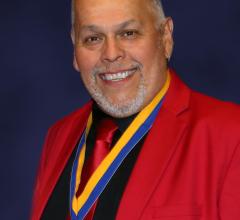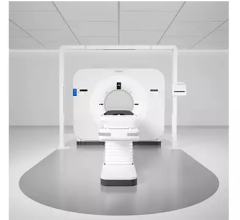July 13, 2012 — The long-term results of RTOG 9402, a randomized phase III trial evaluating the overall survival of patients with oligodendroglioma brain tumors who received either chemotherapy plus radiation therapy (Arm 1) or radiation therapy alone (Arm 2), was reported at the 2012 American Society of Clinical Oncology (ASCO) Annual Meeting, held June 1-5 in Chicago. At a median follow-up of 11.3 years, the study results reveal that patients whose tumor lacked both the 1p and 19q chromosomes (co-deleted tumors) lived twice as long when treated with chemotherapy immediately followed by radiation therapy, than when treated with radiation therapy alone.
“The association between improved outcome for patients who lack the 1p and 19q chromosomes and were treated with PCV chemotherapy [procarbazine, lumustine (CCNU) and vincristine] and radiation therapy has significant implication for patients with anaplastic oligodendrogliomas. We now have evidence that the chromosomal structure of 1p and 19q co-deletion can be used as a marker to determine which patients will benefit from combined chemotherapy and radiation therapy,” said J. Gregory Cairncross, M.D., principal investigator of the trial, professor and head of the department of clinical neurosciences at the University of Calgary, Alberta, Canada.
The RTOG 9402 trial was one of the first to determine that the genetic makeup of a brain tumor determines the magnitude of treatment effectiveness. “The results of this trial are a testament to the importance of the genetic makeup of a brain tumor in predicting how it will respond to treatment, regardless of microscopic appearance,” said Cairncross. The trial’s long-term results were substantiated by the similar results of a European Organization for Research and Treatment of Cancer-conducted trial (EORTC 26081-22086) that was also presented at the ASCO meeting.”
Conducted with four other National Cancer Institute (NCI)-supported cooperative groups between 1994 and 2002, the study enrolled 291 study participants. No significant difference in median survival time (MST) was found between the two treatment arms in participants whose tumors contained only one deletion (1p or 19q) or had no deletions. Among participants with 1p/19q co-deletion, however, MST was doubled in participants in the chemotherapy and radiation treatment arm as opposed to the radiation-only arm (14.7 years MST vs. 7.3 MST).
“These are exciting and practice-changing results,” said Walter J. Curran, Jr., M.D., RTOG group chair and executive director of the Winship Cancer Institute of Emory University in Atlanta. “The announcement of the RTOG 9402 long-term results provided important information that prompted the closure of a trial led by North Central Clinical Trials Group (RTOG 1071). Better understanding of the molecular characteristics of this co-deleted tumor type provided background knowledge for the development of clinical trials evaluating new treatment regimens for patients with the 1p and 19q chromosome co-deletion, including one led by the EORTC (RTOG 0834).”
For more information: www.rtog.org


 November 04, 2025
November 04, 2025 









